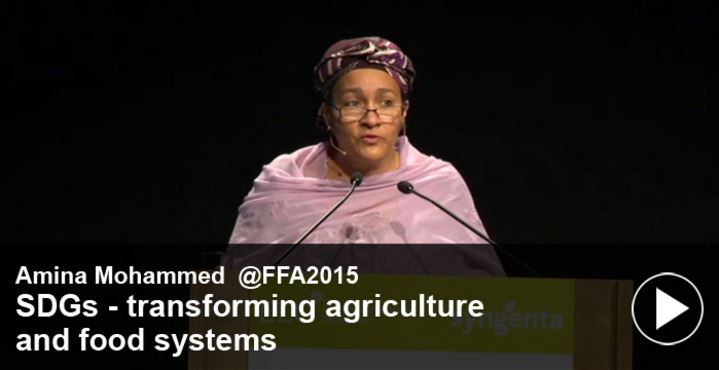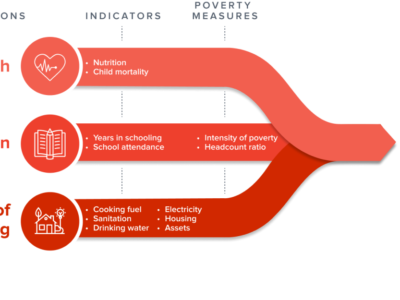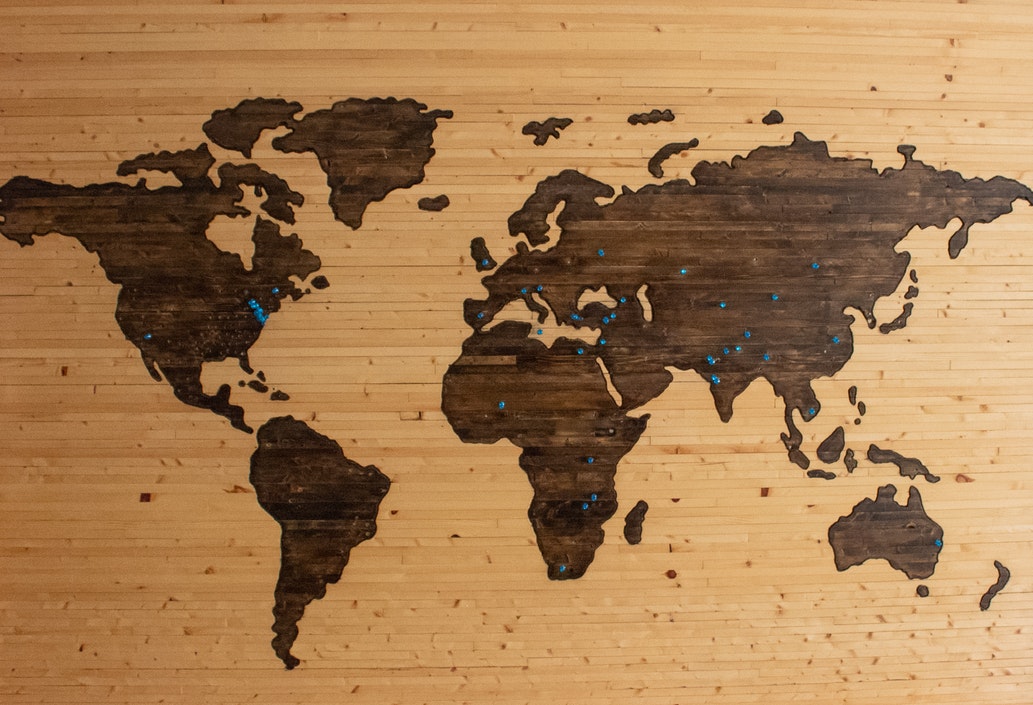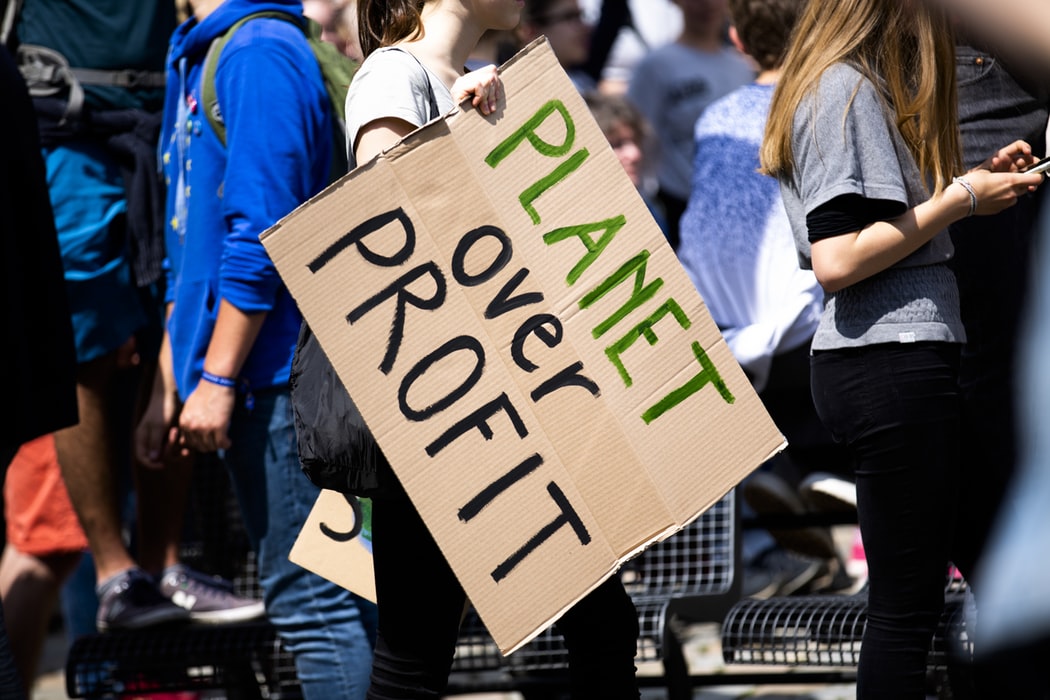The SDGs: Transforming agriculture and food systems to end poverty is a keynote address at FFA2015 (Forum for Agriculture) that was delivered by Amina Mohammed, one of the architects of the new Sustainable Development Goals (SDGs) that will replace the previous global targets: the Millennium Development Goals. The event FFA2015 took place in September 2015 in Milan, Italy at the EXPO site.
Ms. Amina Mohammed is now the Environment Minister of the Federal Republic of Nigeria and the former special adviser on Post-2015 Development Planning for United Nations. Ms. Mohammed was previously Senior Special Assistant to the President of Nigeria on the Millennium Development Goals after serving three Presidents over a period of six years. In 2005, she was charged with the coordination of the debt relief funds ($1 billion per annum) towards the achievement of Millennium Development Goals in Nigeria. From 2002-2005, Ms. Mohammed served as coordinator of the Task Force on Gender and Education for the United Nations Millennium Project.
Mrs Mohammed left no doubt about the global scale of the SDGs: “No one is left without something to do in promoting sustainable agriculture.” This challenge would, however, not only need to be met on the production side, but a similar effort must be made to promote sustainable consumption patterns. Above all, the new goals call for the “preservation and sustainable management of marine and terrestrial ecosystems”.
Watch her keynote below and take action where necessary.
Ending poverty is the first goal (Goal 1) among the new sustainable development goals. The main aim is to end poverty in all its forms everywhere. And by 2030, nobody will live in extreme poverty, anywhere in the world. We can transform agriculture and food systems in order to end poverty.
Targets for Goal 1
– By 2030, eradicate extreme poverty for all people everywhere, currently measured as people living on less than $1.25 a day 1.2.
– By 2030, reduce at least by half the proportion of men, women and children of all ages living in poverty in all its dimensions according to national definitions.
– Implement nationally appropriate social protection systems and measures for all, including floors, and by 2030 achieve substantial coverage of the poor and the vulnerable.
– By 2030, ensure that all men and women, in particular, the poor and the vulnerable, have equal rights to economic resources, as well as access to basic services, ownership and control over land and other forms of 13 property, inheritance, natural resources, appropriate new technology and financial services, including microfinance.
– By 2030, build the resilience of the poor and those in vulnerable situations and reduce their exposure and vulnerability to climate-related extreme events and other economic, social and environmental shocks and disasters.
– Ensure significant mobilisation of resources from a variety of sources, including through enhanced development cooperation, in order to provide adequate and predictable means for developing countries, in particular, least developed countries, to implement programmes and policies to end poverty in all its dimensions.
– Create sound policy frameworks at the national, regional and international levels, based on pro-poor and gender-sensitive development strategies, to support accelerated investment in poverty eradication actions.






